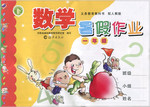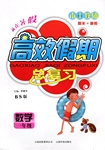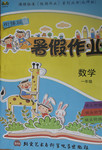题目内容
完形填空 (共15小题;每小题1分,满分15分)
A young British woman had shortly arrived in Hong Kong and had not yet 36 anything about the Chinese 37 . One day she went to the home of a Chinese friend and was 38 given a cup of Chinese tea. She was not 39 and she also found this type of tea rather 40 . However, since she had been given the tea , she felt she should drink it. Hoping to finish it 41 so that she would not feel about having to drink this tea which she did not 42 , she started to drink as much of it as she could. But as soon as her cup became half - full, the host 43 giving her more. Several times she told the host that she had had 44 , but it seemed to have no 45 . Her cup kept being 46 , and she kept on drinking. During the time of her 47 , she drank about twelve cups of tea. Later she found out that she should have just 48 the tea, and that this would have meant that she had had enough. Influenced by her 49 culture, she felt it too 50 to leave the tea and could not understand why the host took no notice of her protests(抗议) that she had had enough!
A. got B. learned C. taught D. remembered
A. culture B. language C. food D. habit
A. hardly B. certainly C. carefully D. immediately
A. tired B. happy C. thirsty D. interested
A. bitter B. sweet C. nice D. cold
A. in time B. slowly C. gradually D. quickly
A. take B. have C. like D. buy
A. practised B. insisted on C. stopped D. tried
A. some B. enough C. all D. a little
A. value B. end C. effect D. importance
A. filled B. moved C. changed D. emptied
A. talk B. visit C. party D. investigation
A. left B. drunk C. absorbed D. filled
A. modern B. ancient C. Western D. Eastern
A. impolite B. polite C. easy D. uneasy
【小题1】B
【小题2】A
【小题3】D
【小题4】C
【小题5】A
【小题6】D
【小题7】C
【小题8】B
【小题9】B
【小题10】C
【小题11】A
【小题12】B
【小题13】A
【小题14】C
【小题15】A
解析:
略

 暑假作业海燕出版社系列答案
暑假作业海燕出版社系列答案 本土教辅赢在暑假高效假期总复习云南科技出版社系列答案
本土教辅赢在暑假高效假期总复习云南科技出版社系列答案 暑假作业北京艺术与科学电子出版社系列答案
暑假作业北京艺术与科学电子出版社系列答案完形填空(共15小题, 每小题1分, 满分15分)
阅读下面的短文,从短文所给的A、B、C、D四个选项中,选出可以填入空白处的最佳答案。
For years we have been told that encouraging a child’s self-respect is important to his or her success in life.__41__ child experts are now learning that __42__ praise can lead to the opposite effect. Praise-aholic(受表扬上瘾的) kids who __43__ it at every turn may become teens who try to get the same kind of __44__ from friends when asked if they want to go in the backseat of the car. ks5*u
The meaning of saying “You are the __45__ girl in class,” or talking about the goals she scored but not her general __46__, is that you love her __47__ when she looks the best, scores the highest, achieves the most. And this __48__ over to the classroom.
Social psychologist Carrol Dweck, PhD, tested the effects of overpraise on 400 fifth graders __49__ she was at Columbia University. She found that the kids who were __50__ for “trying hard” did better on tests and were more likely to take on difficult tasks than __51__ praised for being “smart”.
“Praising qualities or abilities leads to a false __52__ that success will come to you because you __53__ that quality, and it devalues(贬值) effort. __54__, children are afraid to take on challenges, ” says Dweck, now at Stanford University, “They think they’d better __55__while they’re ahead.”
【小题1】
| A.And | B.But | C.Then | D.So |
| A.enough | B.a little | C.too much | D.some |
| A.expect | B.rescue | C.notice | D.design |
| A.education | B.praise | C.competition | D.direction |
| A.prettiest | B.youngest | C.tallest | D.fattest |
| A.ability | B.value | C.kindness | D.effort |
| A.still | B.only | C.already | D.yet |
| A.carries | B.looks | C.turns | D.takes |
| A.while | B.because | C.until | D.unless |
| A.set down | B.looked through | C.picked up | D.thought highly of |
| 【小题11】 |
|
| 【小题12】 |
|
| A.have | B.like | C.advise | D.make |
| 【小题14】 |
|
| A.move | B.stop | C.fight | D.work |